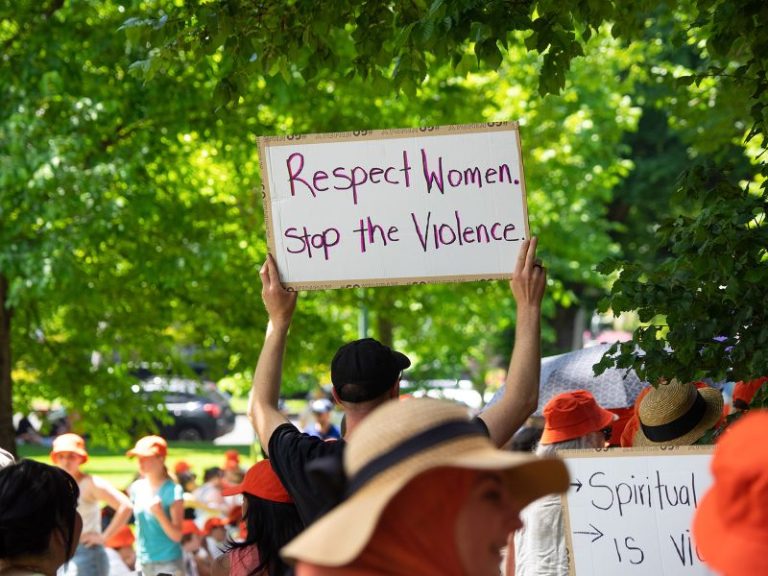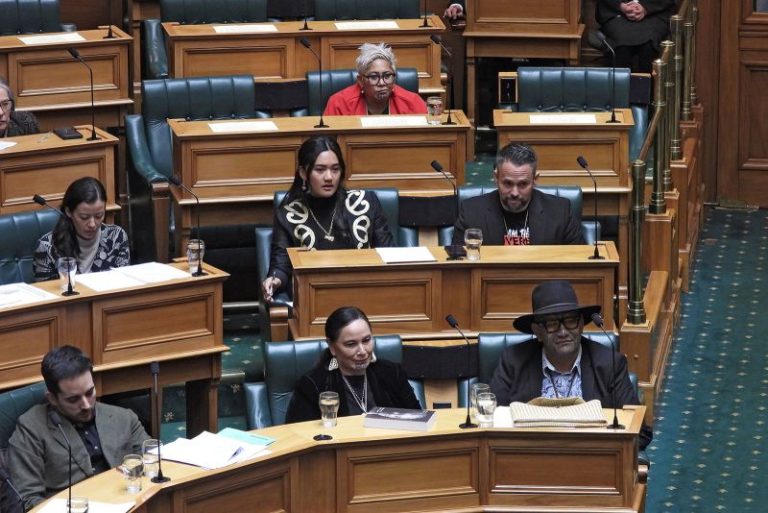More than one in three men in Australia reported using violence with an intimate partner in a first of its kind study which shows gender-based abuse is rising, despite years of national attention on the issue.
The research was part of a longitudinal study called Ten to Men by Australia’s Institute of Family Studies, which began in 2013 and now involves around 24,000 boys and men. Intimate partner violence is defined as emotional, physical and sexual abuse.
The study found that the number of men using violence with their partners has risen over the past decade. Last time the survey was conducted in 2013-2014, roughly 1 in 4 (24%) men had committed intimate partner violence. That figure rose to 1 in 3 (35%).
That equates to about 120,000 men using intimate partner violence for the first time each year, pointing to a worrying trend in a country which has long grappled with how to combat gender-based violence.
In 2022, the Australian government launched its 10-year National Plan to End Violence against Women and Children with a majority priority of advancing gender equality.
But since January last year, 100 women have been killed in Australia, according to Counting Dead Women. Recent protests have called for the government to do much more to end gender-based violence.
“The fact that one in three men in the study reported using intimate partner violence should shake every Australian,” said Tarang Chawla, a violence against women advocate and co-founder of Not One More Niki.
Chawla’s siter, Nikita, was killed by her ex-partner in 2015.
“She was one of the women these numbers speak to,” Chawla said. “We’ve known this is a crisis, but now we have the data to back what victim-survivors, families and advocates have been saying for years: this is widespread, and it’s preventable.”
Study shows father figures matter
Emotional abuse was the most common form of intimate partner violence reported in the Ten to Men study, with 32% of men reporting they had made an intimate partner “feel frightened or anxious,” up from 21% in 2013-2014.
And around 9% of the men reported they had “hit, slapped, kicked or otherwise physically hurt” an intimate partner.
Men with moderate or severe depressive symptoms were 62% times more likely to use intimate partner violence by 2022 compared to those who had not had these symptoms, while men with suicidal thoughts, plans or attempts were 47% times as likely, the study found.
The findings of the Ten to Men study not only underscore the extent of the problem – they also offer key lessons for policymakers looking to tackle the issue, said Sean Martin, a clinical epidemiologist and program lead for the study.
While much of the existing research in Australia on intimate partner violence has rightly focused on survivors and their stories, Martin said, this study takes a new approach by studying perpetrators to better understand how to prevent violence.
It’s the first Australian study to examine how affection in father-son relationships during childhood relate to later use of intimate partner violence.
The study found men with higher levels of social support in 2013-2014 were 26% less likely to start using intimate partner violence by 2022, compared to men who had less support.
Men with strong father-son relationships were also less likely to become violent. Men who strongly agreed that they had received affection from a father or father figure during childhood were 48% less likely to use intimate partner violence compared to men who strongly disagreed.
These findings lend strong support for initiatives to support men’s mental health in Australia, as well as community supports and programs for young dads, Martin said.
Susan Heward-Belle, a professor at the University of Sydney, said the study shows the importance of fathers modeling respect for women, emotional intelligence, empathy and compassion to their children.
“For a very long time, a lot of that emotional, social, nurturance-type work has been seen as women’s responsibilities within families.”
Heward-Belle, who was not involved in the Ten to Men study, said it is crucial to explore further how feelings of entitlement and anger can develop.
“We also know that there are some men who perpetrate domestic and family violence who arguably have had good relationships with both parents.”



